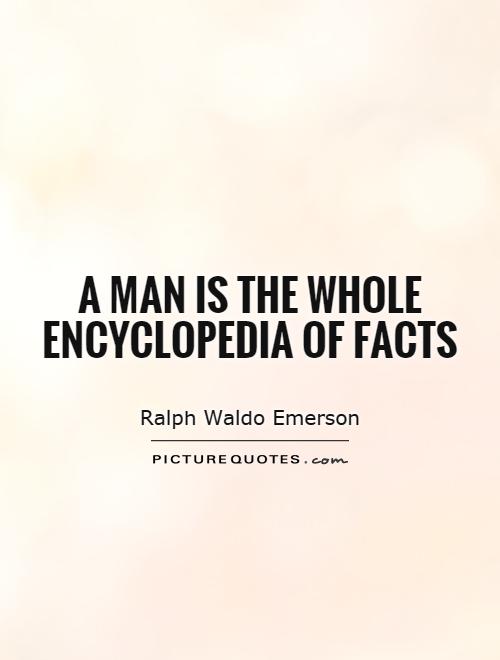A man is the whole encyclopedia of facts

A man is the whole encyclopedia of facts
Ralph Waldo Emerson, a renowned American essayist, lecturer, and poet, once famously said, "A man is the whole encyclopedia of facts." This profound statement by Emerson encapsulates the idea that each individual possesses a vast reservoir of knowledge and experiences that make them a living repository of information.Emerson believed that human beings are not just passive recipients of knowledge but active participants in the creation and dissemination of facts. He saw each person as a unique and complex entity, capable of synthesizing information, drawing connections between disparate ideas, and contributing to the collective pool of human understanding.
In Emerson's view, the human mind is a powerful tool that has the capacity to absorb, analyze, and interpret a wide range of facts and information. He believed that individuals have the ability to learn from their experiences, reflect on their observations, and draw conclusions that can enrich their understanding of the world.
Emerson's concept of the individual as an "encyclopedia of facts" suggests that each person has the potential to become a source of wisdom and insight. By engaging with the world around them, seeking out new experiences, and expanding their knowledge base, individuals can cultivate a deep understanding of the complexities of life and the universe.
Furthermore, Emerson's idea highlights the importance of valuing and respecting the unique perspectives and insights that each person brings to the table. By recognizing the diversity of human experiences and the richness of individual knowledge, we can foster a culture of learning, collaboration, and growth.












 Friendship Quotes
Friendship Quotes Love Quotes
Love Quotes Life Quotes
Life Quotes Funny Quotes
Funny Quotes Motivational Quotes
Motivational Quotes Inspirational Quotes
Inspirational Quotes